Lighting Basics and reflectors
Lighting is the most important aspect of any video or film. The lighting
affects the mood and much of the quality of the film. Too dark and the pixels
start to show through the film as noise and too bright and the camera may not
be able to cut out all the light. But there is much more to lighting than just
this.
Lighting can be natural or artificial and you will have noticed the
colour of the light affects the shot as well. Bulbs can be a different
colour to daylight and light early in the morning or before dusk can also be
different.
With these ideas in mind, you have chosen your location and now you have
to consider the light.
Light can either be natural - (from the Sun) or artificial regardless
There are two features with lights.
One is where to place them or where the sun is, The Direction
Two is about the light you are using. The properties brightness,
quality, shape and colour. If we are outside and using the sun, then
this is the time of day, where the sun is in the sky and the clouds etc. Inside
then this depends on what lights are in the room or what lights you might have
brought with you.
We need to worry about,
The colour of the light (how white it is confusingly called colour
temperature), and contrary to popular belief there isn't just one white
The intensity or brightness of the light of the light,
Whether it is a point source or a wide source the shape
Cameras use flash whereas video needs continuous lighting.
If you need more lights, then the cheapest and
easiest route is to start using reflectors. The cheapest of these is a piece of
white paper on a card, or foamboard you can buy reflectors. Normally a large
one and a small one will suffice.
They are 5 in 1 which gives you white, silver and Gold reflectors for different lighting situations, a black reflector - known as a flag to block out the light, and a translucent screen which is great for reducing the power of the light source and making is more spread out and even. Illustrated here is a large version but for close up shots the smaller ones work really well and are light enough that you can fix them in position quite easily.
They can be fun to fold back up - something my son is yet to master.
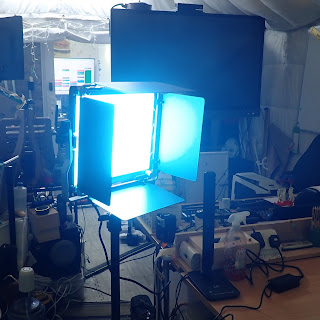

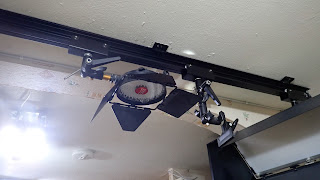

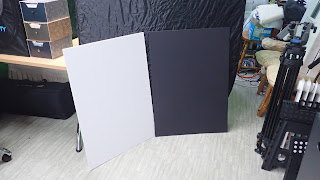
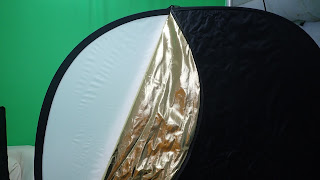


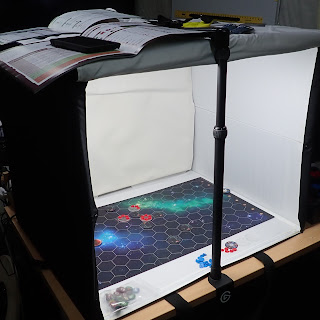

Comments
Post a Comment